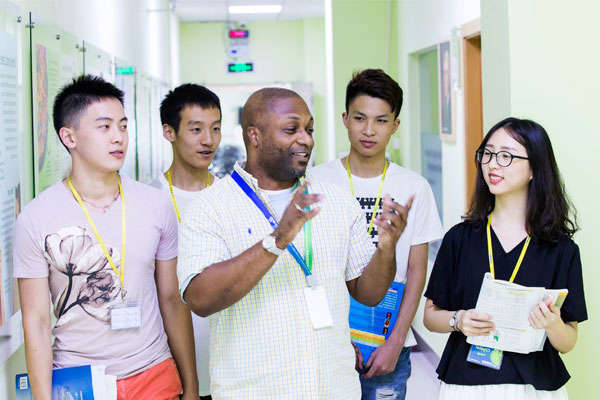Mobile Technology Spurs Water Connections for Nairobi Slum
Kenya's slum residents lack basic services -- like running water and electricity. But that is changing as the World Bank and the Nairobi City Water and Sewerage Company roll out a program to allow residents to pay their water bills by mobile phone.
The technology is the first of its kind in East Africa, and with the water company more confident it will be able to collect revenues, it is working to connect piped water to every household in the Kayole slum.
More than 100,000 people live in the Kayole slum.
For decades the now-deserted public borehole had been the only source of water.
Clean, abundant water
Now, the World Bank and Nairobi water company are advancing a program begun five years ago to provide clean and cheap water to residents. Thousands of people now have water piped to their homes and more are applying for water connections.
Veronica Njeri said the connection of water to her house provides many benefits.
"We use this water for drinking, washing clothes, cleaning houses and utensils. The water is clean. The borehole water, if you drink it that thirst is still [there] because the water is salty," she said.
Those who have piped water, like Njeri, say it has saved them time and has contributed to the general cleanliness and health of their families.
Mobile payments
The connected residents use their mobile phones to acquire and pay their bills. Mary Mwangi said it's now easy for her to pay her bills without delay.
"The innovative technology of paying the bill through my phone has made my work easier because before I had to queue sometimes I find the water office closed. Now I check my meter readings and pay my bills," said Mwangi.
This innovative technology has boosted the confidence of the water authorities to expand the distribution system.
The company has incurred losses in slum areas where there are illegal water connections and consumers are not paying their bills.
Changing model
Vicky Kimaiyo, who is in charge of the project in Kayole for the Nairobi City Water and Sewage Company, said the water company is finding it easy to operate in areas like this.
"The customer base for the utility has increased because this was a place where it was basically not accounted for, I mean they were illegal connections, people were getting water for free," said Kimaiyo. "But right now they get metered and they pay for the water. So of course for the utility that's a plus, and for us who work in such informal settlements we are happy about it."
With more people applying for water connections -- and high demand for clean water -- the company is facing a challenge to provide all the water that is needed. For now, they are rationing water by dividing the area into zones, and giving customers in each zone just a few hours to fill their containers.
肯尼亚贫民窟的居民缺乏最基本的民生必须品—自来水和电。但是,这个局面目前正在改变。世界银行和内罗毕市供水和污水处理公司共同推出了一个项目,允许居民用手机支付水费。
这是东部非洲第一次应用这项技术。现在,水务公司对能收到水费信心大增。现在,他们正忙着为卡罗勒贫民窟的每个家庭安装自来水。
这里是内罗毕的卡罗勒贫民窟,目前大约有10万多人居住在这里。
几十年来, 这个深洞是这里的唯一水源。不过现在已经废弃。
如今,情况有了改变。世界银行和内罗毕的水务公司五年前开展了一个项目,以低廉的价格向当地居民提供清洁的水。现在,已经有数千人家里有了自来水,还有更多的人在申请将水管接到自己家。
韦罗尼卡•恩杰里(Veronica Njeri)说: 将水管接到家中给她带来了很多好处。
她说:“我们引用自来水,用它来洗衣服、打扫屋子并清洗厨房用具。水很干净。如果你喝从深洞里取来的水,你还是会感到口渴,因为那是咸的。”
像恩杰里那样安装了自来水的居民说,这不仅节省了时间,而且也有利于提升清洁水平和改善家人的健康。
那些家中铺设了水管的居民用手机支付账单。玛丽•姆旺基(Mary Mwangi)说,现在她支付账单简单多了,也不会发生迟付的现象。
“这项通过手机付费的革新技术让我的生活简单多了。以前我得排队,有时候自来水公司又关门。现在我自己可以查水表并付账单。”她说。
这项新技术也让水务当局增加了扩展供水系统的信心。
水务公司在贫民窟地区的经营一直亏损,因为有些人非法将水管接入家中,而且有些用户不付账单。
维姬•基麦罗是(Vicky Kimaiyo)卡罗勒项目的主管。 她说,水务公司现在觉得在这些地区的业务容易多了。
基麦罗说:“客户群在扩大, 因为以前这个地方基本是不计算在内的。我的意思是,他们非法接水管,在免费用水。但是,现在,有水表来计算他们的用水量,而且他们也在付水费。 因此,这部分水费是额外的收入。”
随着越来越多的人申请安装水管,对自来水的需求巨大,满足消费者的需要是水务公司面临的挑战。现在,他们通过将这个区域划分成小区的办法来分配水,每个小区的供水时间有几个小时,以便居民储存足够的水。

